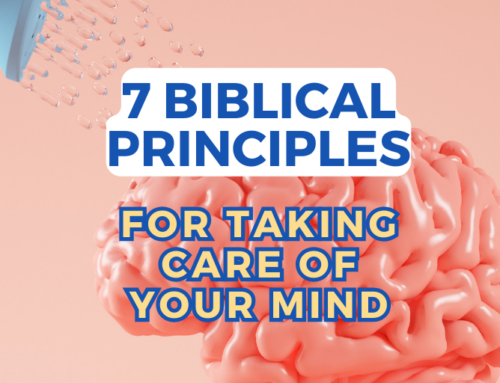Well, I’m back in my writer’s chair, in fits and starts that is. After pressing through a harsh spell of mental anguish, I had the good fortune of contracting pneumonia. It could be worse. Their first diagnosis was congestive heart failure. Pneumonia saps my strength and makes me contagious, but I can live with this. Truly live.
As I sit here on a cold winter’s night, the blank screen taunts me. I’ve decided to do what all good writers do. Steal the work of others, with citation. After all, even writers aren’t God. No Creatio ex Nihilo for us.
So what follows in the italics is a message sent to me on December 13 of last year by a woman named Carrie. Carrie is so thoughtful and articulate, I’ll let her speak for herself then I’ll make a few brief comments at the end.
Hello Tony,
I’ve been following your blogs and took a peek at your website. Although I have to admit I haven’t read your book (yet) – I am intrigued by both your transparency and motivation to alter the perception of mental health. I’ve found enjoyment in following the honest reflection of your journey as a whole and in day to day life. When you invited thoughts to help feed the Facebook community topics, I felt it was appropriate to take you up on the offer and address an area of faith and mental health that has perplexed me. And it goes something like this…
In the management process of mental health, particularly what I know of bi-polar, it’s imperative to manage the highs and lows. It’s important to find that “sweet spot” and live within it. It becomes a constant battle to stay within the confines of those healthy boundaries. Where one can function, live with some emotion, but stay safely away from the extremes. I see it almost as living in a box of emotion. Professionals want you to feel emotionally high, but not too high. And to feel low, but not too low. It’s critical to control those emotions, foreshadow them and know how to contain them. My experience suggests that therapists tell you healthy emotions can be justified by a mindful explanation. People with mental illness are safest when they live in the range of emotions where if you can’t explain it, or your mind can’t also suggests that you should know why you’re feeling a certain way. Because if you can explain it, then you can control it.
Being able to keep your emotional highs and lows near the center of your being, is what keeps people safe. It’s often necessary. But it presents a problem for my faith…. and here’s why.
My faith in our Saviour Jesus Christ, in its most inspirational moments, lives just outside the safe comfort of “explainable” emotions. Faith can’t be seen (Hebrews 11:1), it’s intended to live within your soul… just outside of the comfort zone. To truly find your faith and grow in it, you need to explore those emotions that take you beyond the safety of your comfort. I mean, if you live a life where you need to rationalize how you feel – then that trust and faith in Jesus would never be explored. That’s where faith lives. Beyond the explainable.
So there you have it… in a few short paragraphs. :o) This is an area that I have yet to find any conversation about. How do we expect someone with a mental health diagnosis to stay safely within the confines of their emotional spectrum, but experience the freeing emotions and growth of faith. They seem to contradict one another (in my mind).
Please keep me appraised if this is a topic you address at any point. I’d love to follow along.
God’s best blessings for a joyful day.
Carrie
What a wonderful summary of the conundrum Christians living with a mental illness face. People of faith long to experience life on the edge, to go beyond our comfort zone as Carrie puts it, and we may need to tone this down if we are to maintain a healthy emotional balance. A friend of mine who practices meditation as a path to enlightenment has been advised by his Buddhist teacher to keep it in check lest it set off a psychotic episode.
There is a fine line between mystics and madmen in all religious traditions. Is it even possible to be one without the other?
What do you think?







